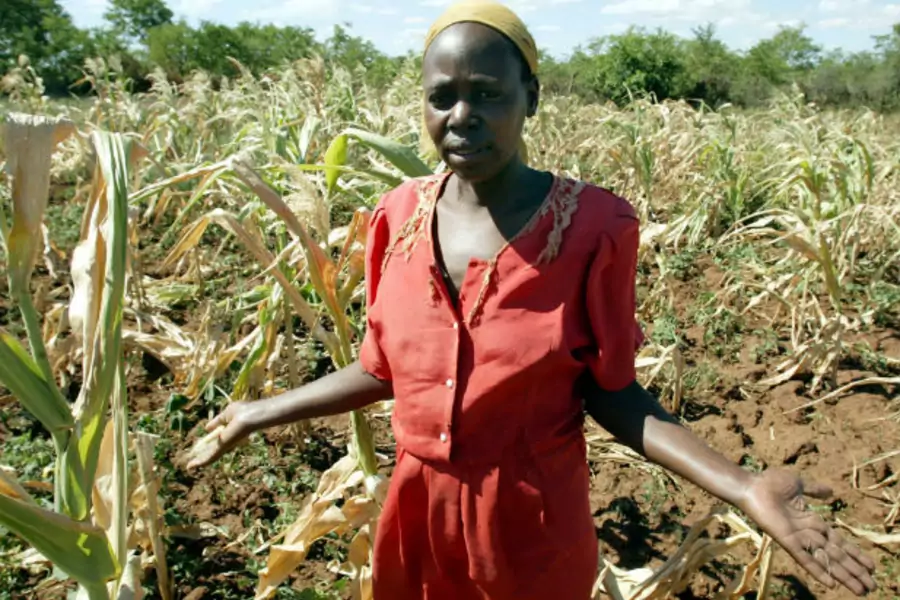Zimbabwe faces a dire warning as scorching El Niño weather patterns take their toll on the nation’s crucial maize crop, raising concerns about food security and economic stability.
According to the latest crop and livestock assessment report from the Ministry of Lands, Agriculture, Fisheries, Water, and Rural Development, farmland planted with maize has shrunk by 12 percent due to the adverse effects of El Niño. This significant reduction in planted area poses a grave threat to Zimbabwe’s food staple, maize, which forms an integral part of the diet of the nation’s population.
The report highlights the potential consequences of the shrinking maize production, anticipating panic purchases and grain hoarding by households and traders. Such actions are expected to accelerate the depletion of grain reserves, leading to earlier-than-expected shortages and significant increases in cereal prices across the country.
The decline in maize cultivation is stark, with the area planted dropping from 1.96 million hectares in the previous season to 1.73 million hectares in the 2023-24 season. This reduction underscores the severity of the impact of El Niño on agricultural productivity in Zimbabwe.
The situation is exacerbated by the broader regional context, with the entire southern African region grappling with the driest February in decades. Elevated food prices, driven by reduced production and increased demand, have placed significant strain on poorer households across the region. Zambia has already declared the drought a national disaster, further underscoring the severity of the crisis.
Zimbabwe’s agricultural regions have endured a prolonged dry spell lasting more than 28 days, leading to widespread damage to crops. The ministry reports that certain crops are already wilting temporarily, while others are exhibiting signs of permanent wilting, signaling a potentially catastrophic impact on yields.
ALSO READ: Shamva North MP Chinodakufa Drives Transformative Developments
In a country where maize consumption is a cornerstone of food security, the implications of reduced production are profound. Annually, Zimbabwe consumes approximately 2.2 million tonnes of grain, with the majority allocated for food consumption and a smaller portion utilized for stock feed. The diminishing maize harvest threatens to disrupt this delicate balance, further exacerbating food insecurity and economic challenges facing the nation.
As Zimbabwe grapples with the consequences of El Niño-induced weather patterns, urgent action is needed to mitigate the impact on food security and livelihoods. Efforts to support affected farmers, bolster resilience in the face of climate change, and enhance agricultural productivity are critical to navigating the current crisis and safeguarding the well-being of Zimbabwe’s population.
ZiMetro
